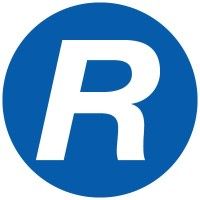Regeneron Pharmaceuticals

🇺🇸United States
- Country
- 🇺🇸United States
- Ownership
- Public
- Established
- 1988-01-01
- Employees
- 13.4K
- Market Cap
- $132.4B
- Website
- http://www.regeneron.com
- Introduction
Regeneron Pharmaceuticals, Inc. is a biotechnology company, which engages in the discovery, invention, development, manufacture, and commercialization of medicines. Its product portfolio includes the following brands: Dupixent, Evkeeza, Eylea, Inmazeb, and Kevzara. The firm accelerates the traditional drug development process through its proprietary VelociSuite technologies such as VelocImmune, which uses unique genetically humanized mice to produce optimized fully human antibodies and bispecific antibodies. The company was founded by Alferd G. Gilman, Leonard S. Schleifer, George Damis Yancopoulos, and Eric M. Shooter on January 8, 1988, and is headquartered in Tarrytown, NY.
Monoclonal Antibodies Market to Reach USD 804.7 Billion By
The Global Monoclonal Antibodies Market is projected to grow from USD 279.8 billion in 2024 to USD 804.7 billion by 2033, at a CAGR of 12.5%. North America is expected to dominate with a 47.5% share in 2024, driven by strong healthcare infrastructure and high R&D investments. Oncology is projected to lead the application segment with a 46.2% share. Major companies include Roche, Novartis, Johnson & Johnson, Pfizer, and Merck.
EMA approves pre-filled syringe for administration of Eylea 8 mg in EU
EMA approves Eylea 8 mg pre-filled syringe for nAMD and DME, offering efficient and precise treatment. Developed by Bayer and Regeneron, Eylea 8 mg extends treatment intervals up to five months with comparable efficacy and safety to Eylea 2 mg. The syringe aims to benefit ophthalmologists and patients with its simplicity and accuracy.
The Highly Anticipated FDA Approvals of Galderma's Nemolizumab and Eli Lilly's
Despite declining use of Sanofi/Regeneron’s Dupixent due to competition from LEO’s Adbry, Pfizer’s Cibinqo, and AbbVie’s Rinvoq, the overall population receiving advanced treatments for atopic dermatitis is rising, according to Spherix Global Insights. Dermatologists estimate that two-fifths of adult atopic dermatitis patients now receive advanced systemic treatments, highlighting the demand for effective AD treatments. The potential approvals of Galderma’s nemolizumab and Eli Lilly’s lebrikizumab could further shift physician preferences, with nemolizumab expected to gain more adoption than lebrikizumab.
Monoclonal Antibodies Market to Reach USD 804.7 Billion By 2033, Driven by ...
Global Monoclonal Antibodies Market to reach USD 804.7 billion by 2033, growing at a CAGR of 12.5% from USD 279.8 billion in 2024. Dominated by North America, human-derived antibodies, and oncology applications, with key players including Roche, Novartis, and Johnson & Johnson.
Novel Drugs Boost Immunotherapy Activity in Resectable Lung Cancer
Adding novel agents to perioperative durvalumab for NSCLC led to higher pCR and mPR rates compared to historical rates with durvalumab and chemotherapy. The highest response rates occurred with the addition of Dato-DXd (pCR 34.1%, mPR 65.9%). All combinations demonstrated manageable safety profiles and surgical rates comparable to approved regimens.
The Highly Anticipated FDA Approvals of Galderma's Nemolizumab and Eli Lilly's Lebrikizumab
Dupixent's dominance in atopic dermatitis treatment is diminishing with the rise of competitors like Adbry, Cibinqo, and Rinvoq. Dermatologists anticipate adopting nemolizumab and lebrikizumab, further challenging Dupixent's market share.
Biotech companies wing their way to the Basel Area
The Basel Area is a leading European hub for life sciences and biotech, attracting major companies like Roche and Novartis. Its appeal lies in a rich ecosystem of research, talent, and infrastructure, making it a prime location for innovation and growth in the sector.
Investment opportunities in atopic dermatitis may drive innovation
The atopic dermatitis (AD) market is projected to reach $16.7bn by 2030, driven by global AD prevalence and clinical trial advancements. Standard treatments offer temporary relief, prompting the need for more effective therapies. Innovative treatments like BTLA and OX40 inhibitors, bacterial therapies, and NTMs show promise. Pharmaceutical companies should invest in R&D, form alliances, and adopt patient-focused strategies to capitalize on market growth.
© Copyright 2025. All Rights Reserved by MedPath
